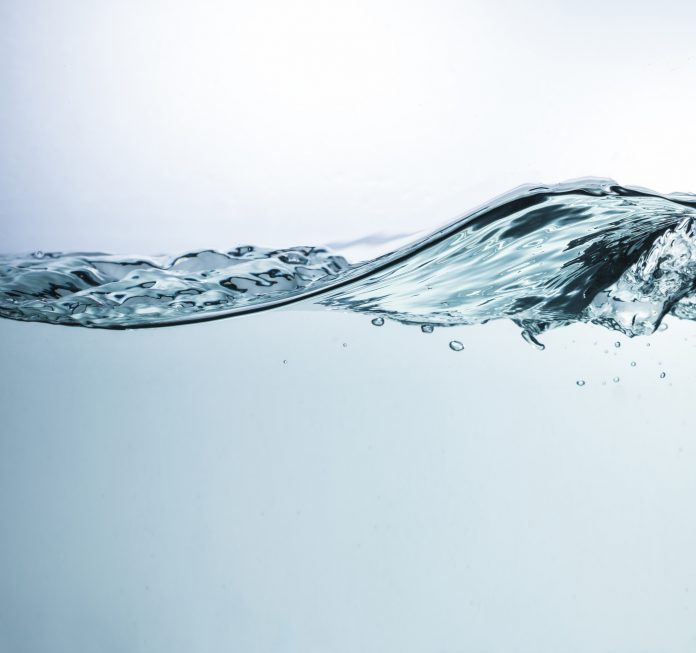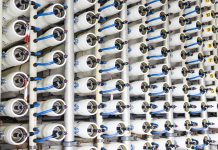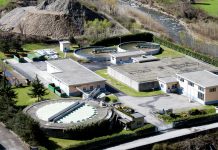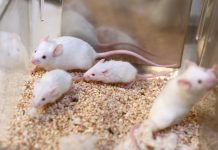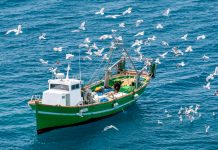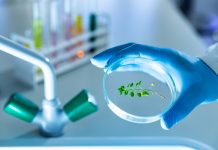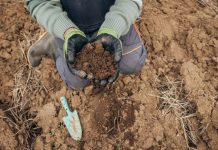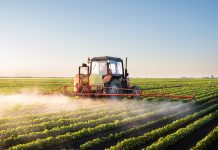In support of the circular economy, the CEO of AGENSO, Zisis Tsiropoulos, describes how the AccelWater project is optimising freshwater consumption in the food and beverage industry to reduce its environmental impact
It is a fact that modern society is called upon to face many challenges on an environmental, social and economic level. Over-exhaustion of natural resources, the food crisis, an ever-increasing human population, the degradation of the natural environment, and climate change are factors that indicate that the linear economy model in the production and consumption of food and resources can no longer be an option for sustainable development.
More specifically, the linear nature of food production has entrenched a pattern of increased inputs into the production line to meet increased demand, while at the same time these inputs are not utilized in the best possible way leading to maximum wastage of resources.
The circular economy action plan
Observing the negative effects of linear food production and the overexploitation of natural resources, a new model of production and economy is required to limit loss and waste, one that will be able to help fight the food crisis and climate change. One such model is the circular economy model.
In 2015, the European Commission launched the first Circular Economy Action Plan with 54 actions which acted as measures for Europe’s transition towards a circular economy. This action plan was updated in 2020 (New Circular Economy Action Plan) with 35 additional actions listed in Europe’s agenda for sustainable development. The action plan supports several policy areas, legislative actions, and targets to be met in terms of reusing, repurposing and recycling by 2030 and 2035.
It is also worth mentioning that more than €10 billion of European funding was designated to projects related to the European circular economy transition between 2016 and 2020. These funds were allocated to programmes like Horizon 2020 and LIFE, financial tools like the European Fund for Strategic Investments and European Investment Bank’s InnovFin, and as part of the EU’s Cohesion Policy.
The environmental impact of the food and beverage industry
The industrial sector, specifically the food and beverage (F&B) industry, plays an important role in the European economy, but it has a significantly negative environmental impact with its water usage, energy overconsumption and waste generation. According to the FAO, 70% of water resources are used for agriculture and irrigation, resources strongly related to the F&B industry.
Additionally, 19% of available water is used directly in industries, with more than half of that being consumed by the F&B industry. Moreover, 28% of the total energy used for food production is consumed in food processing, and the waste generated reaches almost 30.6MT. To tackle the overexploitation of resources, it is crucial for the model of the circular economy to be introduced as a foundation for the industrial sector.
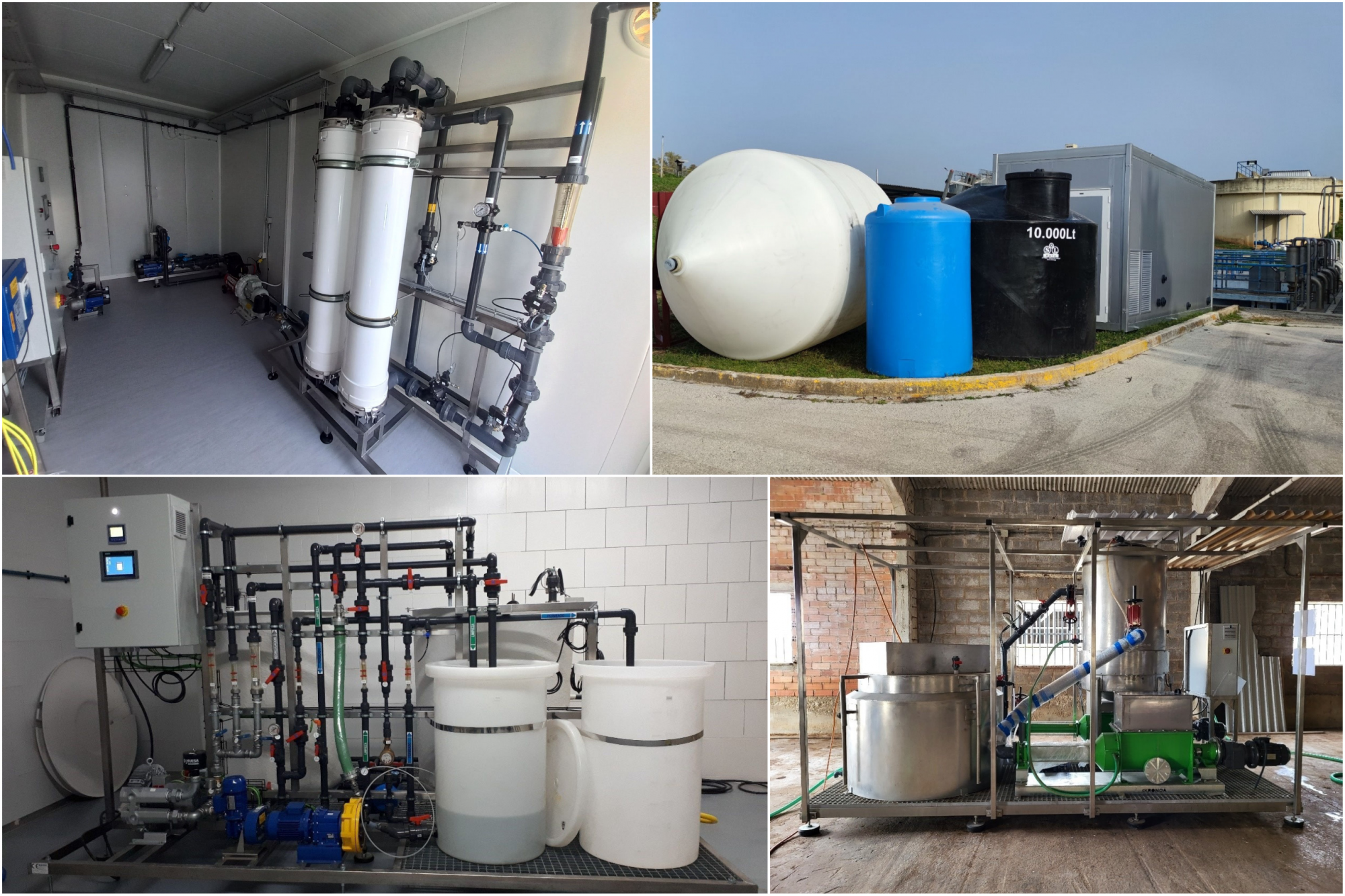
The AccelWater project: Optimising freshwater consumption
‘Accelerating water circularity in food and beverage industrial areas around Europe’ (acronym: AccelWater) is an innovative project funded by the EU’s H2020 Research & Innovation programme. It aims to optimise freshwater consumption in the F&B industry under a water-waste-energy nexus by introducing beyond state-of-the-art water reclaiming, reusing, and Artificial Intelligence (AI) enabled monitoring and control technologies that will permit the use of reclaimed water in manufacturing processes.
The project consortium consists of 17 partners from four countries, among which are F&B industries, research institutes, universities, associations and R&D companies. The F&B industries participating cover many segments, including food processing, dairy, brewery, tomato, fish and meat processing, thus making the project ideal for replication after its successful completion.
Some of the goals set by the project consortium include a greater than 30% decrease in freshwater consumption in each of the four demonstrators; a 20% decrease in the cost of water use (including freshwater consumption and water recycling); a greater than 20% decrease in the volume of waste and cost of waste management, a 20% decrease in the cost of energy used from the central grid, as well as a greater than 30% efficiency achieved in water use.
Large-scale demonstrators
As part of the project implementation, four demonstrators are currently being developed: an industrial symbiosis demonstrator at the Industrial Area of Patras (Greece), a tomato processing demonstrator in Castel San Giorgio (Italy), a meat processing demonstrator in Sant Joan de Vilatorrada (Spain); and a fish processing demonstrator in Akureyri (Iceland).
To achieve the desired circularity, the demonstrators’ targets include water and energy saving, reuse of water, electrical and thermal energy production, and production of new ingredients and products.
The brewery, dairy and food processing industries of the project are participating in the industrial symbiosis demonstrator. The main resources available for treatment are wastewater, acid whey and spent grains.
Regarding the tomato processing demonstrator, the main resources available for treatment are processing wastes, while wastewater and solid waste are the primary resources for the meat processing demonstrator. In the fish processing demonstrator, the main resource available for treatment are side raw material and residual ingredients from processing water and recirculation systems.
AccelWater and AGENSO
AccelWater is coordinated by AGENSO, an innovative Greek R&D startup company founded in 2016, which soon found itself among the top five integrated farming startups globally.
Although conceived as a company specialising in smart agriculture, it has broadened its scope to cover the design and development of ICT and IoT solutions intended for the environment, circular economy, water management and smart cities. Thus, AGENSO develops hardware and software IoT tools, automations, remote management and monitoring systems, and decision support tools.
AGENSO has broadened its spectrum of R&D by participating in many EU & nationally-funded research projects, aiming to develop even more smart and innovative solutions in its fields of interest.
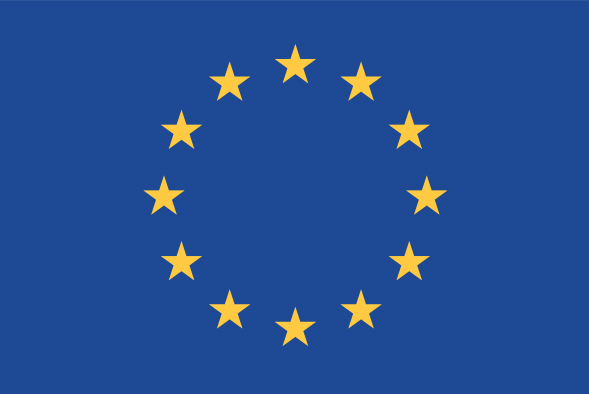
As for the project itself, which will last until April 2025, it has already attracted the interest of various public authorities, associations, and industries. More specifically, more than 50 industries have expressed interest in the project, its results, and its potential replication. Additionally, various public authorities (such as municipalities in Greece and the Catalan government) have shown particular interest in the project and its activities.


